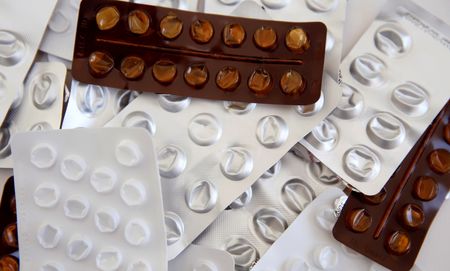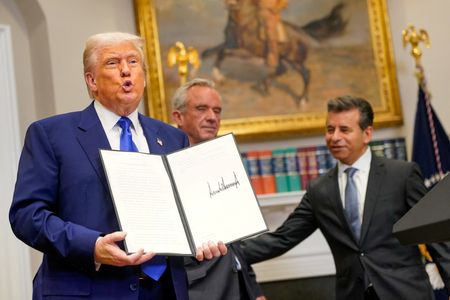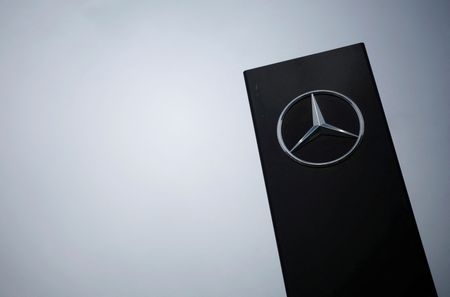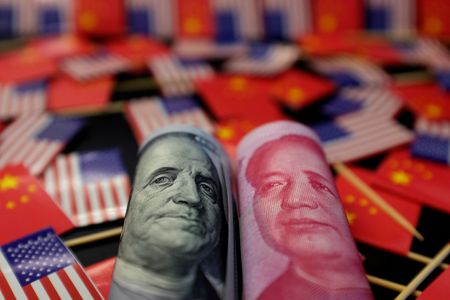By Sriparna Roy and Joel Jose
(Reuters) -Shares of U.S. drugmakers rebounded on Monday after an initial selloff as analysts said that President Donald Trump’s sweeping executive order to slash prescription drug prices would be difficult to implement and face legal challenges.
Trump signed a wide-reaching executive order on Monday directing drugmakers to lower the prices of their medicines to align with what other countries pay.
Shares of major U.S. drugmakers AbbVie, Eli Lilly, Amgen, Pfizer and Merck were trading 2.1% to 4.8% higher in morning trading on Monday after falling premarket.
Leerink analyst Michael Cherny said the executive order would likely face heavy legal challenges, and its execution will be important to gauge the impact on the sector.
“So the timing of any implication of the pieces of the executive order will remain in question.”
Shares of U.S. drugmakers have been under pressure in the past few weeks since initial reports that Trump would sign an order aimed at lowering drug prices in the United States.
“A drug pricing announcement had been expected for a while now and had weighed on stocks in this sector, so the official executive order doesn’t seem to be impacting sentiment too much,” said James Harlow, senior vice president at Novare Capital Management, which owns shares of Merck and Pfizer.
Trump had also tried in his first term to bring U.S. drug prices in line with other countries, but was blocked by the courts.
The broader market moved higher on Monday following the news that the U.S. will cut extra tariffs it imposed on Chinese imports in April this year to 30% from 145% and Chinese duties on U.S. imports will fall to 10% from 125%.
Trump’s comments of “cutting out the middlemen” also weighed on shares of companies that own pharmacy benefit managers. Shares of Cigna slid 6.3%, CVS shares fell 4% and UnitedHealth was marginally down.
The ripple effect of the proposed order, however, had weighed on global stocks throughout the day.
In India, Biocon and Lupin also saw declines, as about a third of the country’s pharma exports go to the U.S.
Australian healthcare stocks closed 1.4% down to their lowest since late April, meanwhile Japan’s pharmaceutical sector closed 6.5% lower and was the worst performer among the Tokyo Stock Exchange’s 33 industry sub-indexes. Shares of Daiichi Sankyo sank over 8%.
The U.S. is an important revenue generator for several UK, European and Japanese pharma companies.
UBS analysis estimates the implementation of Most Favored Nation (MFN) pricing or international reference pricing, as proposed by Trump earlier, across the highest-spending drugs could cut 2028 net income of global pharma companies by 8%.
(Reporting by Joel Jose, Siddarth S, Sriparna Roy and Manas Mishra in Bengaluru and Danilo Masoni in London; Writing by Mrinalika Roy; Editing by Amanda Cooper, Krishna Chandra Eluri and Shinjini Ganguli)











